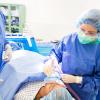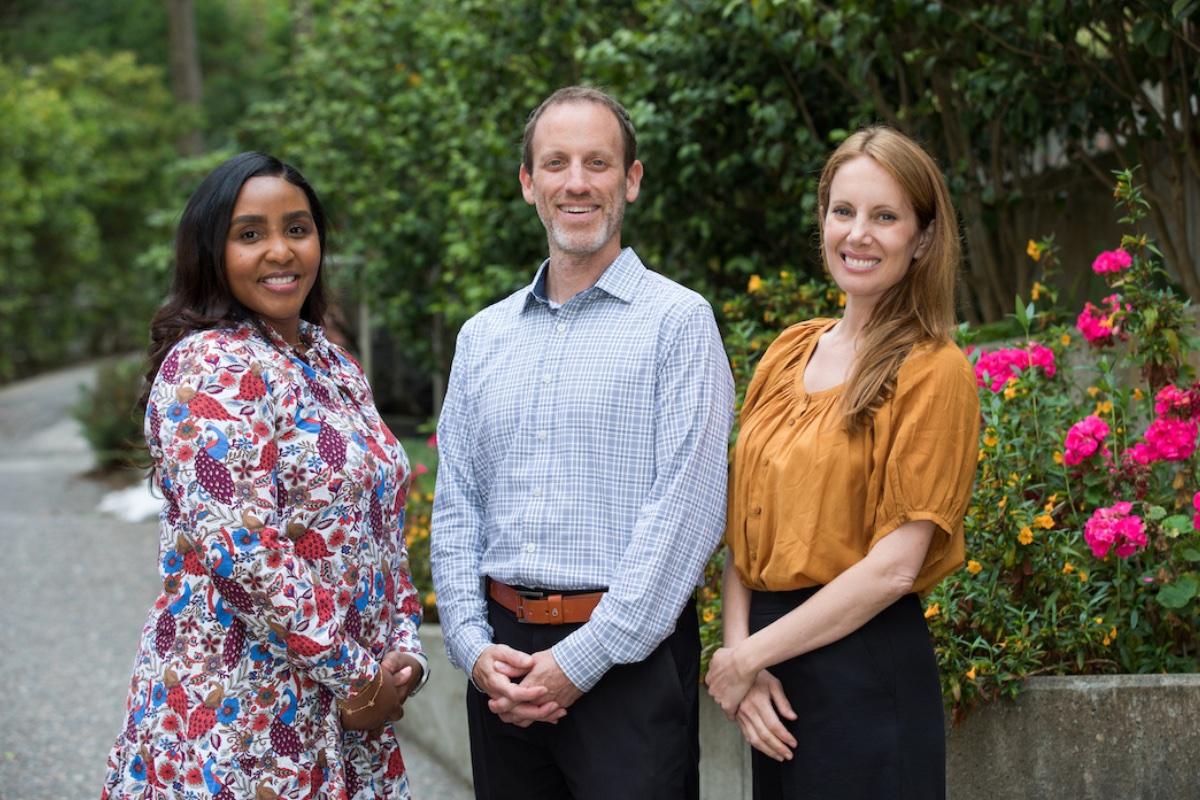
Alicia Bacchus, DNP ’23, MS ’15, FNP-BC; Adam Cooper, DNP ’23, RN, NPD-BC; and Jennifer Viner, DNP ’23, MS ’09, NP (Photo credit: Elisabeth Fall Photography)
How Doctorally Trained Nurses Are Leading Health Care Innovation
Amanda Fox, DNP ’23, FNP-C, pursued a career in nursing because she wanted to help people. Never did she imagine she would one day provide that help from within the walls of the Pentagon.
“It’s a privilege to work with leaders in Washington D.C. to enact change in military medicine on a broad scale,” says Fox.
From advising the country’s top military leaders on health and health care issues, to designing an innovative nurse-led model of care for neuro-oncology patients, UCSF School of Nursing Doctor of Nursing Practice (DNP) alumni are breaking new ground in health care.
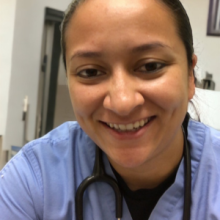
Leading Change in Military Medicine
An active-duty family nurse practitioner, Fox has served in the United States Air Force Nurse Corps for nine years and currently holds the rank of major. Today, she works at the Pentagon on a team that provides medical advising support to the Chairman of the Joint Chiefs of Staff.
Fox began the role shortly after graduating from UCSF with her DNP degree. Her day-to-day responsibilities include the evaluation of evidence and best practices in order to provide accurate medical recommendations. “Every day I use the skills I learned in the DNP program,” says Fox.
Fox says the decision to pursue the DNP degree came about as her career progressed, and she became acutely aware of a lack of nursing representation at the highest levels of leadership.
“Nurses make up the largest proportion of the health care profession, but we rarely have a seat at the table,” says Fox. She enrolled in the DNP program to change that.
Fox credits the program for helping her find her voice as a nurse leader. “The curriculum and the mentorship from UCSF’s exceptional faculty taught me how to harness my health care experience and articulate my perspective in ways that are received and respected.”
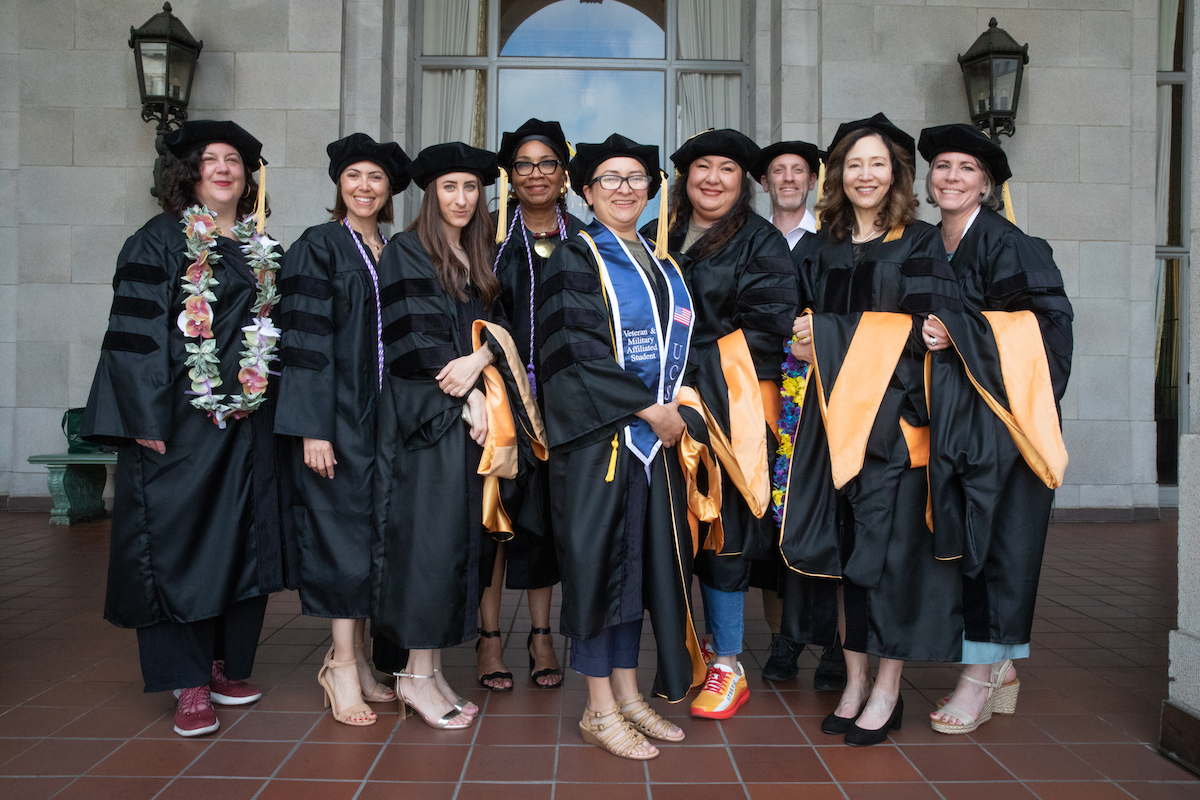
A New Nurse Practitioner-Led Consultation Service for Neuro-Oncology Patients
Jennifer Viner, DNP ’23, MS ’09, NP, works at UCSF Health as a nurse practitioner. She is one of a small number of nurses to receive a prestigious designation from UCSF for excellence in advanced patient care, education, leadership and service.
Shortly after completing her DNP degree at UCSF, Viner was offered a role leading the inpatient consultation service in neuro-oncology for UCSF Health, an innovative new model of care not typically led by a nurse practitioner.
The role is a direct result of work Viner conducted while a DNP student. Her quality improvement project, a required component of the DNP program, focused on a nurse practitioner-led pilot consultation service for neuro-oncology patients with brain metastasis.
When compared to the prior, two-provider model – which included a physician working alongside a nurse practitioner – Viner’s nurse-led model showed increases in consultations requested and conducted, and in revenue generated by a nurse practitioner.

“It demonstrated the value of a nurse’s lens in leading care and that neurosurgeons are accepting of a nurse practitioner-led model,” says Viner.
The DNP program helped her reach her potential as a nurse leader, says Viner, who also teaches students as an associate professor in the UCSF School of Nursing.
“The program equipped me to effectively translate research into clinical practice, conduct quality improvement projects and lead with confidence in a large health care organization,” says Viner.
Championing Implementation Science Across UCSF
Adam Cooper, DNP ’23, RN, NPD-BC, is passionate about using evidence to improve nursing practice. It’s why he enrolled in UCSF’s DNP program.
“The rigor of the DNP curriculum complemented my professional experiences, expanding my understanding of implementation science and enhancing how I do my work,” he says.
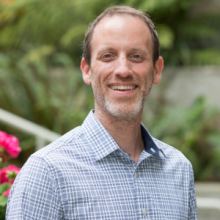
Cooper holds several roles across UCSF. He is the director of nursing continuous improvement and affiliate nursing quality in UCSF Health’s Center for Nursing Excellence and Innovation and the director of the UCSF JBI Centre for Evidence Implementation. In the UCSF School of Nursing, he supports the Volunteer Faculty Network and instructs students as an appointed health leader associate. He also teaches evidence-based practice and leadership development to institutions across the world as co-director of global programs for the UCSF Leadership Institute.
The DNP program, he says, enriched both his leadership and teaching roles. “It increased my knowledge of implementation science and how to coach others in it.”
The DNP scholarly project was a highlight of the program for Cooper. He led a harm reduction project to prevent patients falling in the hospital. The collaborative work led to reductions in overall falls. In fact, there were 17 fewer patient falls during the project implementation when compared to the three months prior, resulting in an estimated avoidance of over $1 million in costs associated with evaluating, treating and hospitalizing patients after falls.
But Cooper says the relationships formed were the most profound parts of the program. “The bond between colleagues during the program, both students and faculty, created a supportive environment reminding us of the power and importance of teamwork,” he says. “This is something I will take into all aspects of my life, personal and professional.”
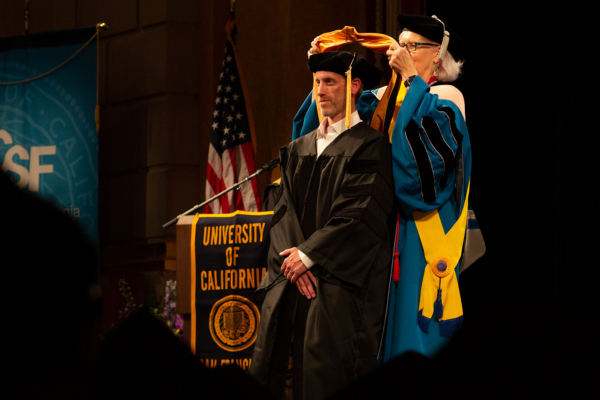
Enhancing Care for Urogynecology Patients
A desire to improve patient care is what led Alicia Bacchus, DNP ’23, MS ’15, FNP-BC, to pursue doctoral training.
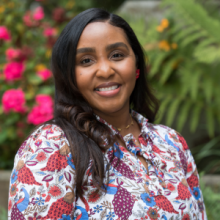
“The DNP program equipped me with skills to effectively translate evidence-based research to better serve patients,” says Bacchus. “It made me a stronger patient advocate.”
While a UCSF DNP student, Bacchus designed and launched a telehealth pilot service for patients who had undergone urogynecologic surgical procedures at New York-Presbyterian/Weill Cornell Medical Center in New York City. Bacchus led post-surgical follow-up outreach, assessing patient needs and formulating a care plan.
The service not only improved patient health outcomes, but it benefitted the medical center financially. The new care model provided an eligible expense, therefore establishing a new revenue source.
“The skills I learned during the DNP program equipped me to think not only about how evidence-based practices can improve patient care, but also about what changes are needed systemically to ensure we are practicing optimally as providers,” says Bacchus.


